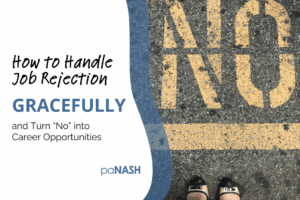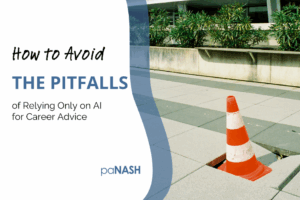|
|
I have several clients who think if they don’t check off all the boxes of requirements on a job ad, they can’t apply for the job. But let me tell you a little story…
You never know what can happen
…When I was just coming out of grad school, I applied for a director’s level position without any full-time professional experience. I knew I was unqualified for the director’s position. But I was interested in it and applied anyway to see what would happen.
Of course I was rejected. But then the company called me because the assistant director position had also just come open. They wanted to know if I was interested in it.
I was much more qualified for this role and was indeed very interested. They offered me the job a few days after my interview! I was so excited because it was my first “real job” out of school.
I say all this to show you never know what can happen. You have nothing to lose but the time it takes to apply.
The truth about the job ad
Most job ads read more like the hiring manager’s “wish list” instead of a realistic request. It’s highly unlikely one person will have all the desired qualifications from the job ad.
As a result, if they aren’t getting the qualified candidate pool they’d hoped for, they’ll likely re-write the job description to reflect a more realistic expectation of qualifications.
When to apply for the job
My recommendation is, if you have at least 65-75% of the qualifications they’re looking for, go ahead and apply and see what happens. Especially if you have any of the preferred qualifications in addition to some of the required qualifications.
But only do so if you have a genuine interest in the job. Never apply for a job you have no intentions of taking just to gain interview practice. This is unethical.
What to do while you wait for a response
While you’re waiting to hear back, see if there is a way for you to learn some of the requirements you’re lacking through a online tutorials or MOOCs. (See the list of educational alternatives in my recent post “How to Know If You Should Go Back to School“.)
Be understanding if they decide they don’t want you, and don’t let the rejection get to you. Instead, be open if they contact you for a job that’s a step-down and is more in line with your current qualifications.
Then in your interview, ask if there are opportunities for future advancement after being with the company for a certain period of time.
Conclusion
I recommend being selective when using the approach above.
If you don’t feel comfortable applying for a job you’re not qualified for, then perhaps you’d be more comfortable doing an informational interview to learn more about what it takes to end up in such a job. (To learn more about informational interviews, check out the on-demand program, The Secret to Successful Networking: How to Do It Naturally and Effectively.)
At the very least you’ll become more aware of the hidden job market and the skills you need to develop.
Related posts
- How to Get Experience When You Can’t Get Hired Without It
- How to Know If You Should Go Back to School






